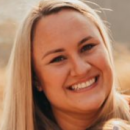
Program Overview
The Pediatric Hematology-Oncology Fellowship Program at the University of Washington is a 3-year training program that prepares physicians to become leaders in the field of pediatric hematology, oncology, and bone marrow transplant. The alliance of Seattle Children’s Hospital, the University of Washington Medical Center, and the Fred Hutchinson Cancer Center provides fellows access to some of the finest research and patient care institutions in the world. The fellowship is fully-funded by an NIH T32 training grant and institutional sources. Additional support is available to enable successful fellows to continue at a junior faculty level for an additional year with protected research time. The majority of our fellows pursue careers in academic medicine, including clinical, epidemiological, translational or laboratory-based research.

Program Mission
- To train outstanding physician researchers, clinicians and leaders who will improve the outcomes and quality of life for children with cancer and blood disorders, and who will be curious and courageous life-long learners.
- To cultivate a safe, supportive, diverse and inclusive training environment where all feel welcome, respected, and heard.

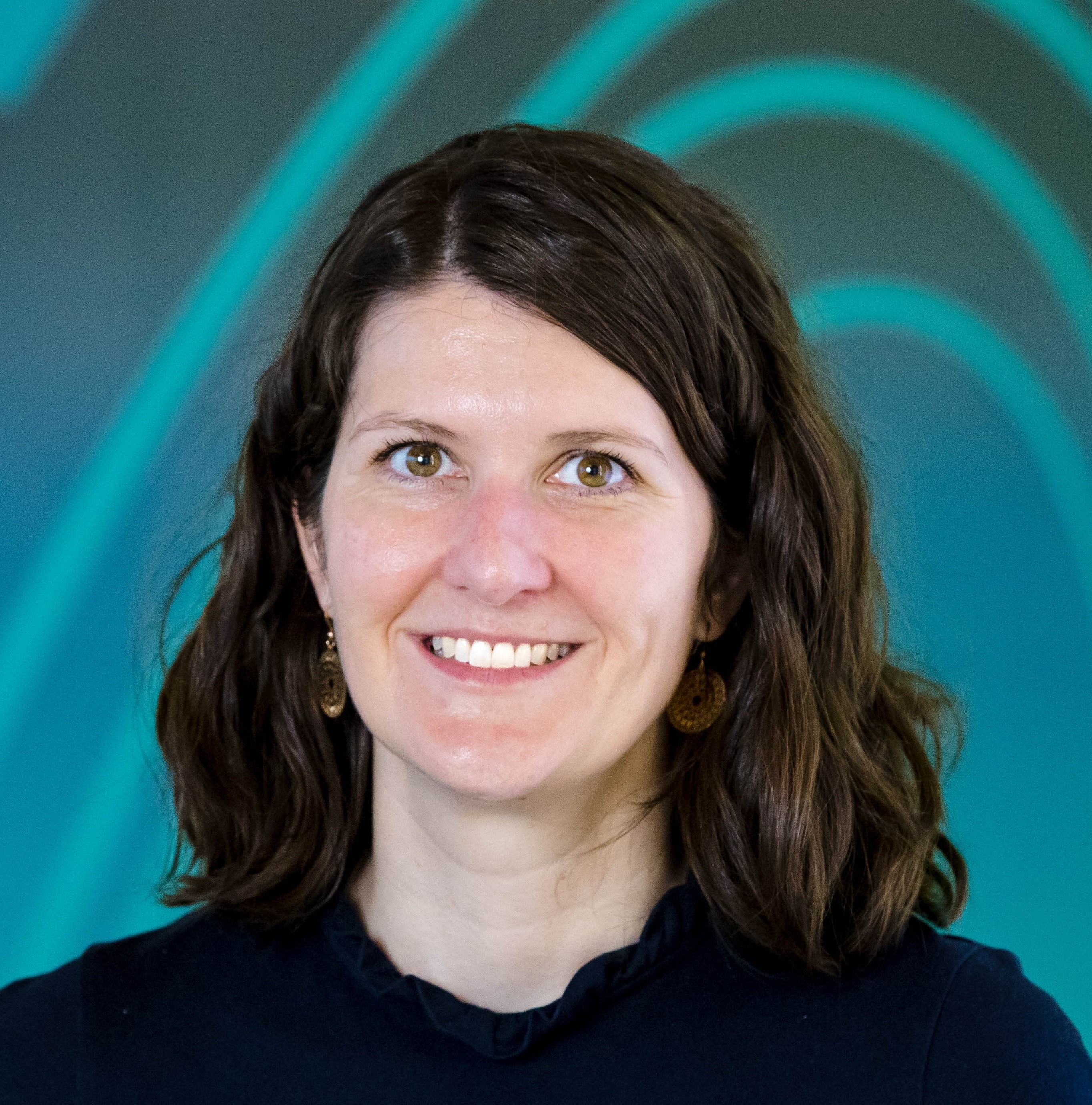
Julie Rivers, MD, MS
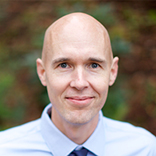
Brandon Hadland, MD, PhD
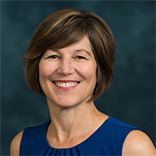
Beth Lawlor, MD, PhD
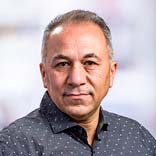
Soheil Meshinchi, MD, PhD
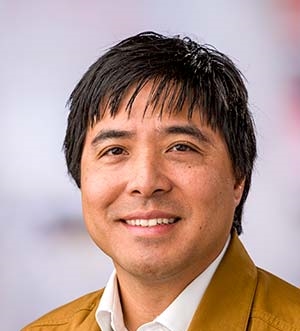
Jason Mendoza, MD, MPH
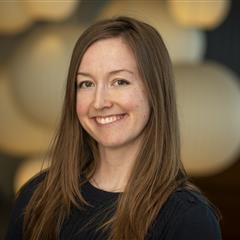
Molly Taylor, MD, MS
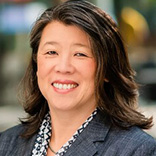
Mignon Loh, MD
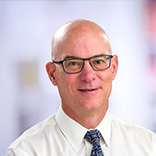
K. Scott Baker, MD, MS
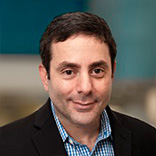
Todd Cooper, DO
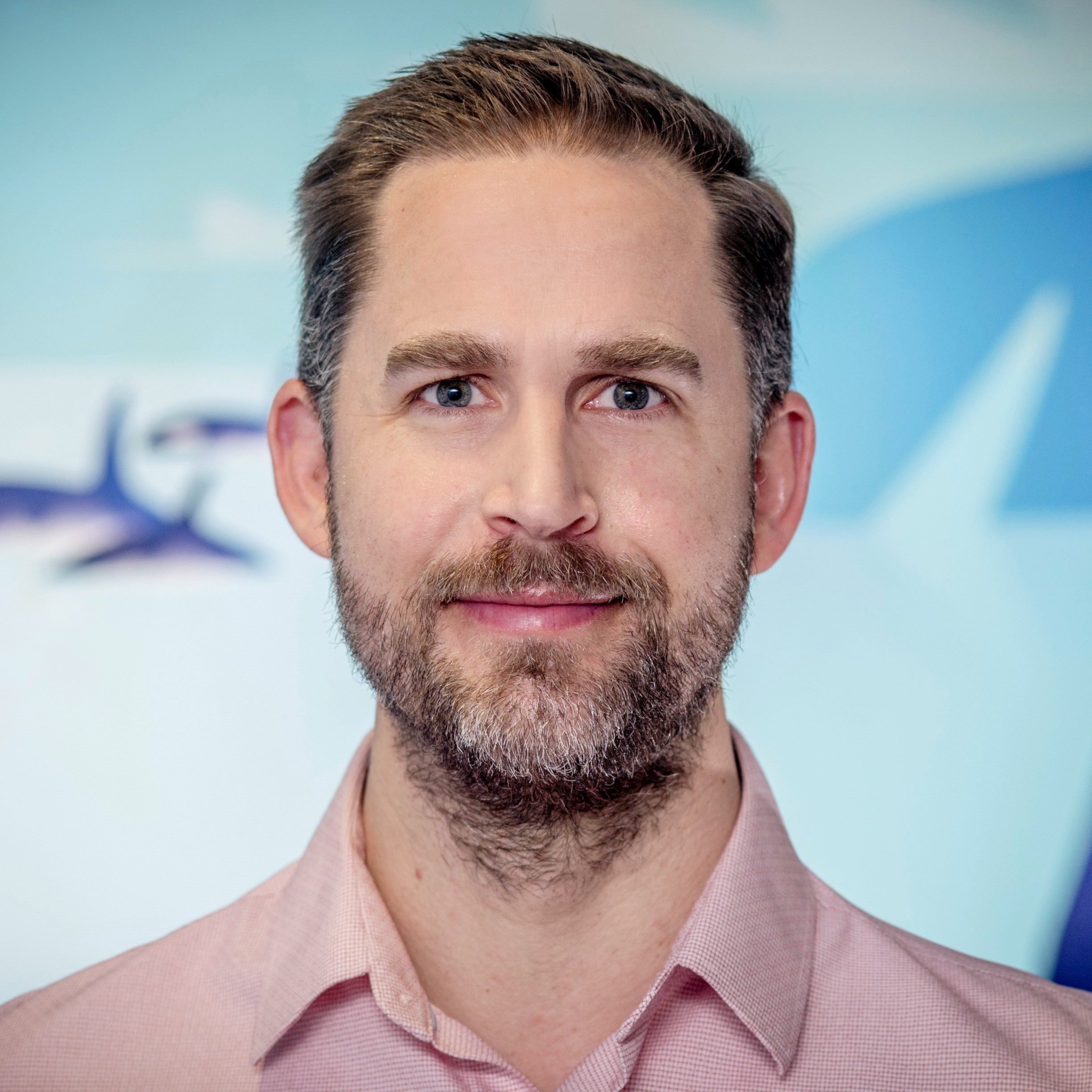
Gavin Roach, MD, MS
Curriculum
Year 1
The first year of the program is focused on clinical training and includes rotations on the inpatient oncology service, outpatient hematology and oncology services, and inpatient and outpatient bone marrow transplant services. Sites of clinical rotations include Seattle Children’s hospital, UW medical center (radiation oncology), and the Odessa Brown children’s clinic (sickle cell disease clinic). Fellows maintain an ongoing continuity clinic one half day a week where they develop a cohort of patients for which they are primarily responsible. Fellows also have a one-month elective rotation to gain additional training in laboratory medicine, radiation oncology, pathology, and other areas of interest. During this block fellows have flexibility to meet with potential mentors for their scholarly research in years 2 and 3
Years 2-3
The second and third years of the program are devoted to scholarly research, with reduced clinical responsibilities. Fellows maintain their continuity clinic throughout their fellowship. They also spend two weeks as a ‘junior attending’ in their 3rd year, either on the inpatient transplant or hematology-oncology services, designed to facilitate their transition to the responsibilities of attending.
Learning throughout fellowship blends didactics with interactive teaching and self study. Regularly occurring conferences include:
- Pediatric Hematology-Oncology division meetings: includes both clinically focused and research presentations (weekly)
- Fellow didactics: fellow and faculty-led teaching sessions covering a broad array of core topics in pediatric hematology, oncology, and transplant (twice monthly)
- Professional development and humanism curriculum: topics include career development, wellness, communication skills (monthly)
- Grant writing seminar: focused on early career development awards for 2nd/3rd year pediatric hematology-oncology fellows (weekly seminar held yearly April-June)
- Discipline-oriented conferences: solid tumor, neuro-oncology, leukemia, hematology, marrow failure, high-risk leukemia-transplant, non-maligant transplant (weekly)
- Standard practice meetings: review and update policies related to standard clinical management pathways (monthly)
- Hematopathology conference: review of benign and malignant hematology cases (monthly)
- Hemoglobinopathy conference: laboratory based review of complex hemoglobinopathy cases (quarterly)
- Fred Hutchinson Cancer Center Grand Rounds: research and clinical presentations (weekly)
- Fred Hutch Clinical Research Division Scientific Seminars: research presentations (weekly)
- Additional Fred Hutch Events and Seminars: topics including global oncology, cancer survivorship, science education partnership, the Underrepresentation Curriculum Project
- The Seattle Children's Fellows College offers a variety of educational and career development seminars and training opportunities for pediatric subspecialty fellows.
- The Fred Hutch Office of Scientific Career Development offers professional development resources and career counseling for postdoctoral and medical fellows.
Fellows take call from home with decreasing frequency from years 1 to years 2 and 3. There is no in-house call, however fellows are expected to return to the hospital to evaluate and direct management of patients with suspected new cancer diagnoses. Fellows take calls from the families of our patients as well as referring community physicians who seek consultation after 5 pm or on weekends. We have an inpatient hospitalist service that provides in-house management of inpatients and transplant patients and supervises the on call pediatric residents.
Seattle Children’s Hospital serves as the pediatric and adolescent academic medical referral center for Washington, Wyoming, Alaska, Montana and Idaho. Seattle Children’s Hospital has partnered with the Fred Hutchinson Cancer Center and the University of Washington to offer a full range of services for children with hematologic and oncologic disorders.
We diagnose about 250 pediatric patients with oncologic disorders and perform approximately 75 hematopoietic stem cell transplants each year. Our inpatient oncology unit has 60 beds. U.S. News & World Report magazine has ranked Seattle Children’s Hospital among the nation’s top children’s hospitals every year since it began ranking medical facilities more than 25 years ago.
Seattle Children’s hospital participates in a number of research consortiums including the Children’s Oncology Group (COG), Phase I consortium, New Approaches to Neuroblastoma (NANT), Therapeutic Advances in Childhood Leukemia (TACL), Pediatric Brain Tumor Consortium (PBTC), Pediatric Oncology Experimental Therapeutics Investigators Consortium (POETIC), and the Blood and Marrow Transplant Clinical Trials Network (BMT CTN). Investigator initiated research studies include cellular immunotherapy, gene therapy, and hematopoietic cell transplantation. Seattle children’s hospital consistently ranks in the top 5 for patient enrollment in clinical trials.
Children’s serves as the primary teaching, clinical and research site for the Department of Pediatrics at the University of Washington School of Medicine. Medical students and residents regularly rotate on the Hematology/Oncology service.
We offer a variety of specialized programs to provide multidisciplinary care for our complex patients.
- Bleeding Disorders Program. We diagnose and manage bleeding disorders including hemophilia, von Willebrand disease, platelet function disorders and rare coagulopathies.
- Bone Marrow Failure Program (Amy Geddis, MD, PhD). We diagnose and manage a variety of acquired and inherited bone marrow failure syndromes. We collaborate closely with our colleagues at the Fred Hutchinson Cancer Center who perform non-malignant hematopoietic stem cell transplants.
- Sickle Cell Disease Program at Odessa Brown/Seattle Children's (Chris Denton, MD). We diagnose and provide comprehensive care for children with sickle cell disease and related sickling disorders in a community setting.
- Leukemia-Lymphoma Program (Kasey Leger, MD, MSc). We offer comprehensive leukemia and lymphoma care, including acces to the most advanced treatments in immunotherapy, targeted therapies, innovative combinations of chemotherapy, radiation therapy, surgery and stem cell transplants.
- High-Risk Leukemia Program (Katherine Tarlock, MD, Marie Bleakley, MD, PhD). We coordinate care for children and adolescents with high-risk leukemia including ALL and AML who are referred from around the world for specialized care and access to novel clinical trials. We offer several trials in immunotherapy and hematopoietic stem cell transplant.
- Brain Tumor Program (Sarah Leary, MD). This is a multidisciplinary clinic where patients can see oncology, radiation oncology, neurosurgery and supportive services.
- Solid Tumor Program (Katie Albert, MD). This is a multidisciplinary clinic where patients can see oncology, orthopedic surgery and supportive services for a variety of solid tumors.
- Blood and Marrow Transplant Program (Scott Baker, MD, MS). The Fred Hutchinson Cancer Center consistently has amongst the highest survival rates for hematopoietic stem cell transplants of any treatment center in the country and performs transplants for both malignant and non-malignant disorders.
- Non-Malignant Transplant Program (Lauri Burroughs, MD). We offer hematopoeitic stem cell transplants for a variety of non-malignant hematologic and immunologic disorders, offering access to clinical trials involving reduced intensity conditioning regimens and gene therapy.
- Adolescent and Young Adult Cancer Program (Tyler Ketterl, MD, MS). We offer a wholistic approach to the care of teens and young adults with cancer, recognizing their unique physical, mental, and emotional needs.
- Fertility Preservation Program (Tyler Ketterl, MD, MS). We offer comprehensive consultation to all our patients and a range of options for fertility preservation for pediatric and AYA patients with cancer or who are undergoing stem cell transplant.
- Cancer Survivor Program (Eric Chow, MD, MPH). SCH is recognized as a Center of Excellence for survivorship by the Livestrong foundation.
- Cancer Predisposition Program (Jack Brzezinski, MD, PhD). We offer comprehensive evaluation and management for patients and familites with genetic predisposition to cancer.

In order to meet our fellows’ unique career development goals, we develop an individualized research program for each; this includes ongoing mentorship regarding research projects, timelines for manuscript and grant development, as well as targeted career development seminars. All fellows participate in regular works-in-progress presentations within their laboratory or clinical research teams.
Fellows participate in at least 2 years of scholarly work. The fellowship program offers a diverse array of research opportunities. Our trainees have the option to pursue research projects with mentors from the Seattle Clinical Research Institute, the Fred Hutchinson Cancer Center and the University of Washington. Fellows may choose mentors from within and outside the division, and co-mentored research projects are common, facilitated by the highly collabortive scientific environment of our partner institutions. Each fellow will have a Scholarship Oversight Committee to guide them through their research project. Fellows are encouraged to present their work at meetings and to apply for grant funding to support continuation of their research beyond their fellowship. Fellows with a strong laboratory or translational research focus without a prior PhD degree can choose to pursue PhD training during fellowship as part of the Molecular Medicine and Mechanisms of Disease (M3D) PhD Program.
Laboratory and Translational Research opportunities at Seattle Children’s Research Institute include:
- The Ben Towne Cancer Research Center is home to the world-renowned SCRI immunotherapy research program. Cutting edge science in Chimeric Antigen Receptor (CAR) T-Cell regimens includes translational research programs for leukemias and solid tumors. Ben Towne also houses strong laboratory-translational research programs in sarcoma and brain tumor biology, cancer genomics and epigenomics, and tumor microenvironment/immunology.
- The Center for Clinical and Translational Research (CCTR) is home to multiple basic science laboratories focused on the development of treatments that transform the health of children. The CCTR is home to more than 400 research faculty and staff members from over 30 subdivisions and is the hub for clinical investigation and therapeutic development at Seattle Children’s Research Institute.
- The Center for Immunity and Immunotherapies brings together a dynamic group of experts across multiple disciplines to solve some of the immune system’s most complex problems. Many of the researchers treat patients in the Immunology, Rheumatology and other clinics at Seattle Children’s Hospital. The center’s research evolves from clinical questions to laboratory-based investigation and back to patients in the form of improved diagnostic tools for primary immune deficiency and autoimmune diseases, advanced therapies for genetic disorders, including gene therapies, and innovative vaccine strategies and enhanced immune monitoring techniques.
- Other centers at SCRI include:
Research opportunities at the Fred Hutch are housed within six scientific divisions, offering a unique and highly collaborative scientific environment:
- The Clinical Research Division works to develop and analyze new treatments for cancers and other diseases and translate investigational new agents from the bench to the bedside. Division scientists conduct cutting-edge research and clinical trials designed to improve patient care and survival. Each year, hundreds of trials are conducted by scientists at Fred Hutch and our Cancer Consortium partners UW, and Seattle Children’s.
- The Translational Science and Therapeutics Division is composed primarily of laboratory-based research groups that work in areas related to hematopoiesis, immunology, hematopoietic cell transplantation, immunotherapy and gene therapy. The overall goal is to advance our understanding in these research areas and to develop next generation therapies for patients with hematologic malignancies and disorders, solid tumors and infectious diseases.
- The Basic Sciences Division is comprised of >30 independent and highly interactive laboratories pursuing different, yet related, areas of molecular and cellular biology and utilizing a broad range of approaches and experimental systems. Research opportunities with faculty in this division include areas such as cancer genomics, gene regulation and epigenomics, and cell biology.
- The Human Biology Division aims to cultivate interdisciplinary research to advance understanding of human biology and the complex problems of neoplasia and other human diseases. The division is structured to foster laboratory-based and computational research at the interface of basic, clinical, and population sciences.
- The Public Health Sciences Division identifies strategies that would ultimately reduce the incidence of and mortality from cancer and other diseases. Using large populations as their "laboratory," researchers look for links between cancer and its possible triggers, from diet and lifestyle to environmental and genetic factors. Identifying such cancer causes can lead to better cancer-detection methods and new ways to help people adopt healthier lifestyles to minimize or avoid their risk of getting the disease in the first place.
- The Vaccine and Infectious Disease Division, VIDD, aims to develop novel vaccines for infectious diseases that threaten global health, to shed light on the workings of the human immune system, and to develop novel treatment and prevention strategies to lessen the burden of infectious diseases and cancers caused by infection, particularly in the immunocompromised host. The international HIV Vaccine Trials Network (HVTN) is headquartered at VIDD. Nested within VIDD is Fred Hutch’s Global Oncology Program aimed at addressing the worldwide cancer epidemic by translating four decades of scientific exploration into new prevention and treatment strategies.
- The scientific divisions of the Fred Hutch also partner with other local institutions within Integrated Research Centers to promote a highly collaborative research culture that allows investigators to rapidly translate discoveries in the laboratory to new treatments for patients with cancers and other diseases. These include the Immunotherapy Integrated Research Center, the Translational Data Science Integrated Research Center, the Hutchinson Institute for Cancer Outcomes Research, and Seattle Translational Tumor Research, amongst others. The Immunotherapy IRC also houses the Fred Hutch Innovation Lab, spurring innovation at the nexus of data science and immunology by leading the development and early adoption of powerful new research technologies that hold the potential to drive lifesaving discoveries in cancer immunology and other areas of science.
The University of Washington Medical Center also offers a full slate of basic and translational science research opportunities. Faculty in the Pediatric Hematology-Oncology division have active scientific collaborations with numerous other divisions, partner institutions, and consortiums at the University of Washington, providing a wealth of research opportunities for trainees.
- The UW Department of Genome Sciences is consistently ranked amongst the top graduate programs worldwide, with internationally recognized faculty who are leading basic research, technology development, and computational advances in the field. The Brotman Baty Institute (BBI) brings together UW Genome Sciences, Seattle Children's, and the Fred Hutch, fostering advances in precision medicine by leveraging UW leadership in genomics, bioinformatics, and data science and providing core resources and grants opportunities for faculty and trainees of the partner institutions.
- The Institute for Stem Cell and Regenerative Medicine (ISCRM), home to more than 130 labs, is one of the largest research institutes at the UW. It's mission is to turn fundamental discoveries in stem cell science into therapies for today's patients. Anchored in the vibrant South Lake Union research and technology hub that includes the Fred Hutch, Seattle Children's Research Institute, the Institute for Systems Biology, the Infectious Disease Research Institute, the Allen Institutes for Brain Science, Cell Science, and Immunology, ISCRM has been a leader in research grants, patented more than 250 discoveries, and started 20 companies.
- The UW Cancer Consortium is a partnership between the University of Washington Medical Center, Fred Hutch, and Seattle Children's Hospital. It is supported by a P30 Cancer Center Support Grant that provides funding for formalized cancer research programs, shared research resources, scientific and administrative management, development of new scientific opportunities, and centralized clinical trial oversight and functions.
- The UW Division of Hematology includes leaders in the fields of malignant and non-malignant blood disorders, offering additional research and clinical mentorship opportunities.
- UW faculty members have been responsible for many basic science and technological advances in medicine and have been pioneers in numerous areas, including transgenic animal technology, cell replication and signal transduction research, genetics and genome sciences, regenerative medicine, as well as the development of medical ultrasound, renal dialysis and technology critical to protein science. International recognition of UW faculty scientific achievements include:
- UW biomedical research programs have been ranked consistently among the top schools in receipt of National Institutes of Health (NIH) grant funding in U.S. News & World Report surveys.
- When the National Institutes of Health created the first three National Centers of Excellence in Genomic Sciences, the UW received two of the three awards – one in the School of Medicine and one in the College of Engineering.
- Faculty include numerous Nobel Prize winning researchers and National Academy of Sciences awardees. Ten UW Medicine faculty are recognized by the Gairdner Foundation for their seminal contributions to scientific advances worldwide.
Fellows interested in clinical or outcomes research may pursue careers in epidemiology and public health, survivorship and outcomes, global health, health equity, bioethics, and palliative care. Our clinical research track (CR track) is well-established and includes specialized mentorship from research leaders in these fields. Fellows on the CR track are encouraged to enroll in Master’s Degree programs at the University of Washington (e.g., in the School of Public Health). Just as with the laboratory research opportunities, the CR track includes a wealth of focused research training opportunities from Fred Hutch, The University of Washington, and SCRI.
- The Behavioral and Clinical Outcomes Research Program (BCORP) is the home for cancer outcomes research within the Ben Towne Center for Childhood Cancer Research. The BCORP portfolio incorporates diverse yet complementary topics including biobehavioral and psychosocial outcomes, health services, health equity and communication science. Our work is informed by the psychosocial needs of our patients and families, and leverages innovative transdisciplinary research methods to improve pediatric and AYA cancer care for all.
- The Biobehavioral Oncology Research Program at Seattle Children's Research Institute, led by Dr. Molly Taylor, studies how psychosocial and neuroimmune processes impact pediatric and adolescent and young adult (AYA) patients with cancer. Research in this program focuses on identifying and understanding how positive and negative biopsychosocial factors — like stress, anxiety, depression, resilience and social support — influence clinical cancer outcomes and quality of life for patients
- The Survivorship and Outcomes program: The Survivorship Programs of the Fred Hutch and Seattle Children's, directed by Dr. Scott Baker and Dr. Eric Chow, are dedicated to conducting research to learn more about the long-term and late effects of cancer treatment and to improve the quality of life for survivors. Researchers are involved in projects ranging from studying the long-term cardiovascular effects of cancer treatment, to examining the factors that determine emotional adjustment and quality of life.
- Seattle is home to the University of Washington Cambia Palliative Care Center of Excellence (CPCCE), an internationally-renowned research center dedicated to improving the quality of palliative and end-of-life care. The collaborative, inter-professional faculty of the center conduct research supported by more than 20 on-going NIH and foundation-funded grants. These faculty members provide diverse expertise, mentorship, and resources for those interested in palliative care oncology research. The Palliative Care Research Fellowship Program, funded by a T32 training grant award from the NHLBI, supports fellows interested in careers in palliative care research. Fellows may also obtain specialized training in palliative care through the UW Graduate Certificate in Palliative Care.
- Population Health: The Public Health Sciences Division of the Fred Hutch aims to aim to identify strategies that would ultimately reduce the incidence of and mortality from cancer and other diseases.
- The Center for Diversity and Health Equity at Seattle Children's is dedicated to reducing health disparities and improving the lives of all patients, families, research participants and the community. The center sponsors the Health Equity Research Program, which provides training, career development support, and grant opportunities for students, residents, fellows, and junior faculty who are from diverse backgrounds or who focus on health equity research. Fellows have the option to participate in the UW Child Health Equity Research Program for Post-doctoral Trainees, a 2-year research fellowship program in child health equity research, funded by NICHD and co-led by Dr. Tumaini Coker and Dr. Jason A. Mendoza. One of the primary goals of the program is to increase the number of under-represented racial/ethnic researchers who are independently-funded scientists in child health equity research.
- The Treuman Katz Center for Pediatric Bioethics is housed in the SCRI Center for Clinical and Translational Research. It serves as a national resource for addressing the complex bioethical issues affecting families, healthcare institutions and society.
- Global Health: Seattle is a hub for Global Health, home to the Bill & Melinda Gates Foundation, PATH, Health Alliance International, I-TECH, Fred Hutch's Global Oncology Program, and the UW Global Health Department. Seattle also houses national leaders in Global Oncology, with several experts at the Fred Hutchinson Cancer Research Center and the University of Washington. From infectious disease related cancer research, to cancer advocacy, to capacity building efforts, each focus is represented in Seattle. For fellows interested in a career in global oncology, a Global Health Track is available within the fellowship program that includes scholarly research and coursework in global health.
- The Fred Hutch partnership with the Uganda Cancer Institute is a great example of a winning partnership between a cancer center in a low resource setting and a center of excellence here in the USA. Though this program, Fred Hutch faculty spend time in Kampala and participate in training of oncology fellows from both the UW as well as the UCI. The collaboration has been productive and has resulted in the development of several research studies and clinical trials, including an ongoing study of treating Burkitt lymphoma with subcutaneous Rituximab. Over the past few years, faculty in the hematology/oncology department at Seattle Children’s Hospital (SCH) have begun to participate in this program. As part of these collaborative efforts, physicians from the UCI have visited the hematology/oncology clinic at SCH, and pediatric oncology faculty at SCH are working with oncologists at the UCI both through remote consultation and on the ground in Kampala.
- In addition to work with the UCI, hematology/oncology faculty members at SCH are participating projects in pediatric global hematology and oncology around the world. This includes visiting and directing sites that are part of the American Society of Hematology – Health Volunteers Overseas (ASH-HVO) collaboration, particularly sites in Asia and Africa. Pediatric hematology/oncology faculty also have leadership roles in the ASH-sponsored initiative to develop standard treatment for acute lymphoblastic leukemia (ALL) in the developing world, with the first pilot sites in the Caribbean enrolling patients beginning in 2019.
- The University of Washington School of Public Health offers a Master’s degree in Global Health, for fellows interested in obtaining an MPH.
- Fellows may also pursue mentored clinical and outcomes reseach within the Health Services and Quality of Care Research Fellowship program of the UW School of Public Health.
At the University of Washington, Seattle Children's Hospital, and the Fred Hutch, diversity is integral to excellence. We value and honor diverse experiences and perspectives, strive to create welcoming and respectful learning environments, and promote access, opportunity and justice for all.
We believe that the diversity of our fellows, residents, medical students, staff and faculty is a fundamental element of our ability to ensure that all our patients and families receive the highest-quality care – no matter their race, ethnicity, language, literacy, age, gender, gender identity, sexual orientation, religion, disability or finances. Our objective is to create a community that encourages participation and connection, and that values and includes each individual's unique contribution, in every aspect of our mission and practice.
Diversity, equity, inclusion, and bias training are critical aspects of our program, formally integrated into our curriculum, research, and clinical practices at the University of Washington, Seattle Children's, and the Fred Hutch. The UW Network of Underrepresented Residents & Fellows, sponsored by the UW Graduate Medical Education Office and the Office of Healthcare Equity, aims to promote cultural diversity in medicine through community involvement, education, advocacy, policy, mentorship, professional networking and recruitment and retention of underrepresented minorities in medicine. The Fred Hutch Diversity, Equity & Inclusion Core coordinates and facilitates diversity, equity and inclusion initiatives in research, workforce development, workplace culture and climate, and community development. Seattle Children's Center for Diversity and Health Equity aims to promote health equity by identifying and addressing determinants of inequities in healthcare, creating equitable research participation opportunities for diverse communities, funding support for research projects and research teams that focus on health equity issues, and fostering equitable career pathways for diverse faculty and staff.
Our division and fellowship program are dedicated to increasing diversity in the field of pediatric hematology-oncology by sponsoring clinical and research training opportunities for students and residents from backgrounds that are historically underrepresented in medicine and biomedical sciences. Opportunities include UW/Seattle Children's Funded Visiting Electives for Underrepresented Minority Medical Students, the Fred Hutch Pathways Undergraduate Resarch Program, Summer High School Internship Program and Summer Undergraduate Research Programs, and the Seattle Children's Research Institute Summer Scholars Program and Invent at Seattle Children’s Postdoctoral Scholars Program. Our faculty and fellows are active participants as mentors in these programs. Students and residents interested in a career in pediatric hematology-oncology or biomedical research are encouraged to contact us to facilitate identifying faculty sponsors in our division for participation in these programs.
Please find more information and resources related to the Department’s commitment and work for Justice, Equity, Diversity, and Inclusion here, as well as in the attached slides.
We are one of the longest standing NCI-funded pediatric training programs. Our Fellowship Program is funded by a T32 training grant from the National Cancer Institute. The initial year of fellowship funding and funding required beyond that supported by the T32 training grant are provided through institutional sources and the generosity of the Kiwanis Childhood Cancer Program.
Additional support is available to enable successful fellows to continue at a junior faculty level for an additional year with protected research time. Graduates of our program are also eligible for funding to continue their research through an internal NIH/NCI K12 Career Development in Pediatric and Medical Oncology Award. Our fellows are also highly successful in securing extramural career development grants as a transition to independent faculty positions as physician-scientists and clinician-scholars. Recent awards include those from the NIH (K08 Mentored Clinical Scientist Research Career Development Award, NIH Loan Repayment), ASCO Conquer Cancer, Alex’s Lemonade Stand Foundation, St. Baldrick’s Foundation, SRI Clinical Scholars, Childhood Brain Tumor Foundation, Damon Runyon, the Leukemia and Lymphoma Society, Hyundai Hope on Wheels Foundation, the American Society of Hematology Scholars, Rally Foundation for Childhood Cancer Research, Burroughs Wellcome Fund, and Children's Cancer Research Fund.
Application Information
- Completed or currently enrolled in US Pediatric Residency Program
- Passing scores on all USMLE steps (must pass all steps prior to admission to fellowship)
- Commitment to a career in academic medicine
Applications for the Pediatric Hematology/Oncology fellowship program must be made through ERAS.
We require a minimum of three letters of recommendation with one to come from your residency program director and request that your personal statement be one page in length and describe your career goals. Applicants must also register with the National Resident Matching Program (NRMP).
Please be sure all requested materials are part of your ERAS file at the time you submit your application to ERAS so the reviewers will have access to complete information about you.
- 2024 interview dates are scheduled Sept 6, Sept 13, Oct 4, Oct 11, Oct 18, Oct 25, Nov 1.
Please submit questions to Lanie Cuerva.
Contact for More Information or Questions
